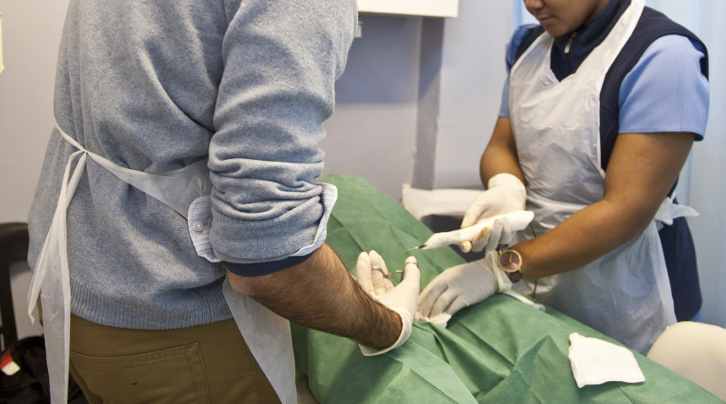Circumcision is the surgical removal of the foreskin covering the tip( glans ) of the penis. The procedure can be a religious ritual ( ie Jewish , Muslim ) . Circumcision is fairly common for newborn boys in certain parts of the world, including the United States but not in some third world countries such as Haiti, parts of Africa, and South America. Circumcision after the newborn period is possible, but it’s a more a more involved procedure, best performed in expert hands.
The procedure can also be a matter of family tradition, personal hygiene or preventive health care. For others, however, circumcision seems unnecessary or disfiguring.
Sometimes there’s a medical need for circumcision, such as when the foreskin is too tight to be pulled back (retracted) over the glans or causes pain during sexual activity or masturbation. In other cases, particularly in parts of Africa, circumcision is recommended for older boys or men to reduce the risk of certain sexually transmitted infections.
In addition to the cosmetic appearance of the penis, consider these health related benefits of a circumcision. The surgical procedure can be easily performed in the adults, in the medical office of a urologist , under local anesthesia.
Benefits
• Easier hygiene. Circumcision makes it simpler to wash the penis. However, boys with uncircumcised penises can be taught to wash regularly beneath the foreskin.
•Decreased risk of urinary tract infections. The risk of urinary tract infections in males is low, but these infections are more common in uncircumcised males. Severe infections early in life can lead to kidney problems later.
• Decreased risk of sexually transmitted infections. Circumcised men might have a lower risk of certain sexually transmitted infections, including HIV. Still, safe sexual practices remain essential.
• Prevention of penile problems. Occasionally, the foreskin on an uncircumcised penis can be difficult or impossible to retract (phimosis). This can lead to inflammation of the foreskin or head of the penis.
• Decreased risk of penile cancer. Although cancer of the penis is rare, it’s less common in circumcised men. In addition, cervical cancer is less common in the female sexual partners of circumcised men.
Angelo E. Gousse, MD
Clinical Professor of Urology – Herbert Wertheim College of Medicine – FIU
Voluntary Professor of Urology – University of Miami , Miller School of Medicine
Director of Fellowship:Female Urology,Voiding Dysfunction, Reconstruction
Memorial Hospital Miramar, South Broward Hospital District
1951 SW 172 Avenue, Suite 305,
Miramar, FL, 33029
Tel: 954-362-2720 Fax: 954-362-2761
www.bladder-health.net


